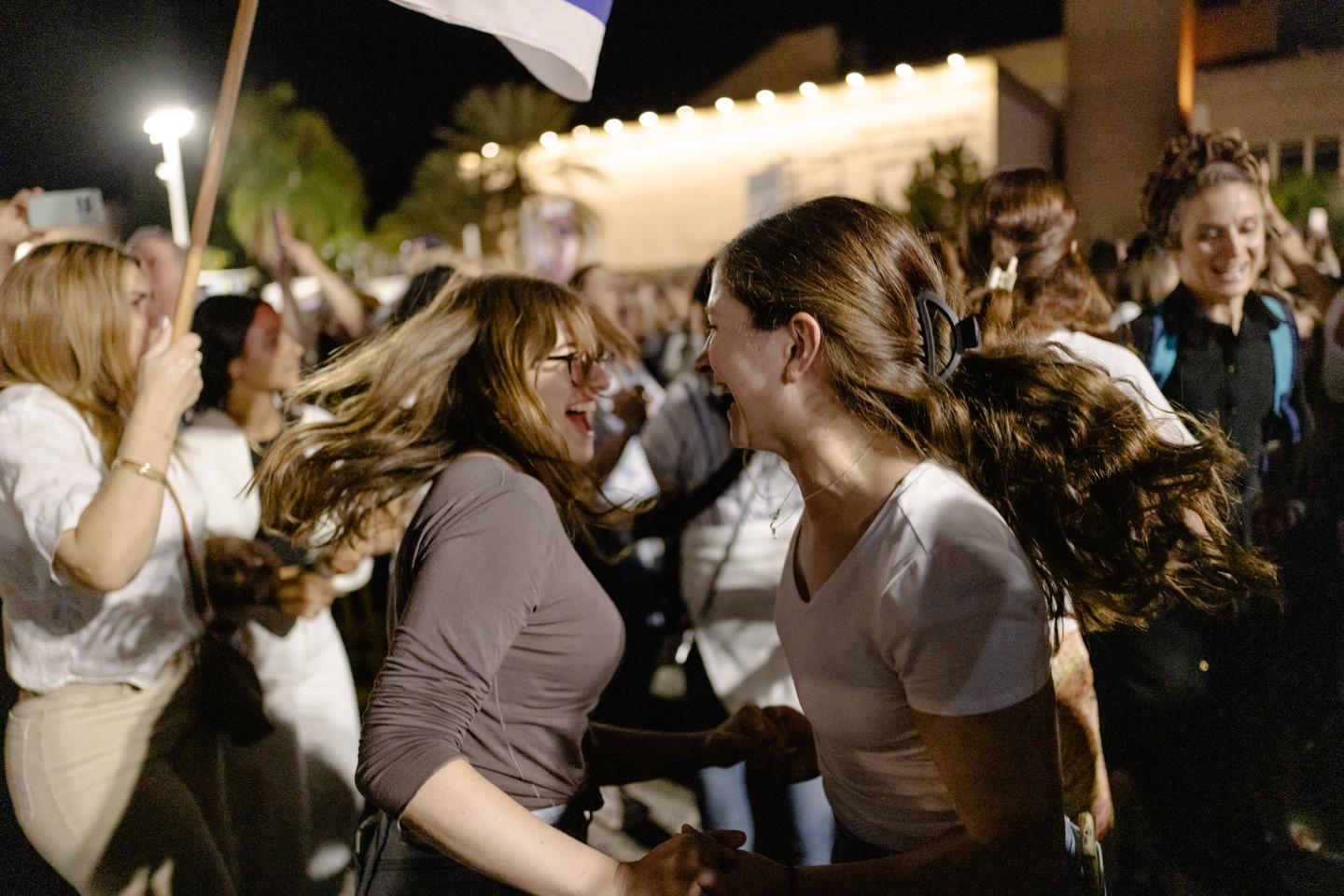In Tel Aviv’s Dizengoff neighborhood, groups danced and sang through the night, repeating two refrains that have echoed constantly for two years at Hostages Square: “I’m Coming Home,” a old hit popular among American veterans, and “Bashana Haba’a” (“peace next year”), a melody synonymous with hope. Out on the street, a young woman shouted in English, “The war is over!” Israel would have wished that Monday, October 13, could last forever, given how the liberation of the 20 living hostages brought about a kind of national unity. It was a rare moment. And a brief moment.
In a country deeply traumatized by October 7, scenes of reunions and celebrations continued. Revital and Osher Kalfon hugged their nephew Segev at Sheba Hospital in Tel Aviv, a 27-year-old baker from Dimona who was kidnapped on October 7, 2023, during the Nova music festival. “We could see right away that although he seemed to be in good health,” they said, “his eyes still reflected the horror he experienced. But at least now we can turn the page, like the whole country, and move on.”
Objects bearing witness to the October 7, 2023, attack were on display at Hostages Square in Tel Aviv, on October 14, 2025. LAURENCE GEAI/MYOP FOR LE MONDE
Celebration of the Jewish holiday of Simchat Torah in Tel Aviv, on October 14, 2025. LAURENCE GEAI/MYOP FOR LE MONDE
The return of the hostages was a collective catharsis, as though Israel had been holding its breath for two years, since the deaths of 1,200 people and the abduction of 251 others by Hamas on October 7, 2023, and could finally breathe again. “Of course, the question of responsibility is there,” Revital and Osher Kalfon continued, “but it’s secondary. Obviously, we still wonder how this could have happened, but the joy is so strong that it will take time to come down,” echoing the sentiments of most families.
You have 81.23% of this article left to read. The rest is for subscribers only.

